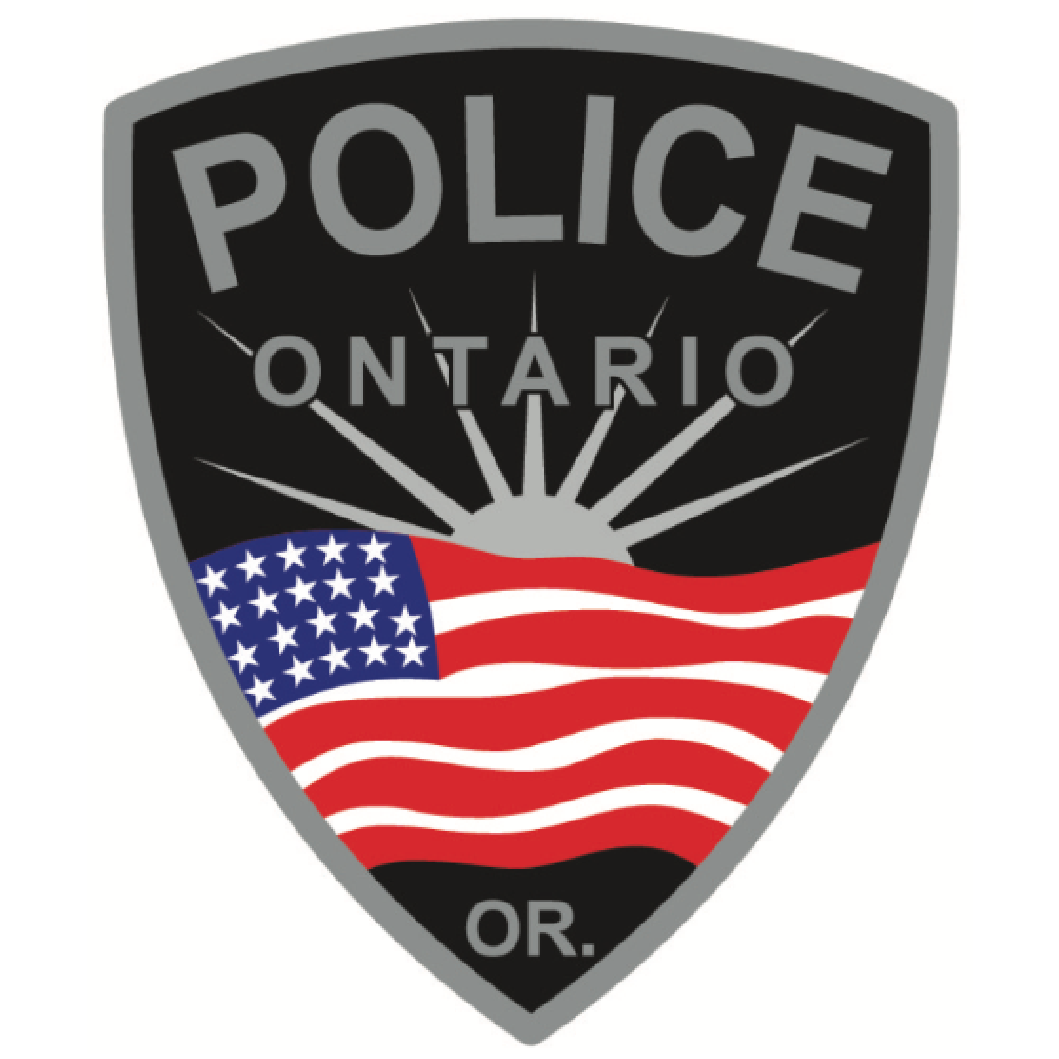The mission of the Ontario Police Code Enforcement division is to promote and maintain a safe and desirable living and working environment. Code Enforcement enforces all city codes regarding animals, parking, and properties. It is in the City's best interest to have a safe and clean city for our visitors and citizens of Ontario.
Our responsibilities include code compliance (Ontario's Municipal Code), nuisance abatement, animal services, and parking enforcement. Our goal is to educate the community and seek voluntary compliance prior to enforcement.
Our responsibilities include code compliance (Ontario's Municipal Code), nuisance abatement, animal services, and parking enforcement. Our goal is to educate the community and seek voluntary compliance prior to enforcement.
Animal Ordinances 6-2(1-28)
All citations regarding animals carry a maximum fine of $360 per offense. Animal enforcement includes dogs running at large, dog licensing, dogs as a public nuisance, vicious dogs, and animal cruelty.
Dog running at large: An animal owner cannot permit their dog to run at large off of their private property. If off private property a dog must be adequately leashed or in a motor vehicle. Dogs that are picked up running at large that are not licensed or do not show a license are taken to Ani-Care Shelters. Please see website for an updated list with pictures of dogs that have been picked up if yours is missing. If the Ordinance Officer or a police officer picks up your dog, you will be required to pay a $35 release fee to the Ontario Police Department before you can retrieve your dog at Ani-Care Shelter.
Dog licensing: All dogs living in city limits must be currently licensed with the City of Ontario. Also, there may not be more than three dogs at any residence without applying for a kennel permit. Information on obtaining a dog license can be found here.
Dog as a public nuisance: The most common complaint of nuisance dogs is prolonged barking. A dog that barks for more than five total minutes in a consecutive fifteen-minute period is considered a nuisance dog. A nuisance dog must occur and be reported twice in a seven (7) day period. These criteria must be met in order for a citation to be issued.
Vicious dog: A vicious dog is any dog that without provocation attacks or bites a human or any other animal, or a dog that shows propensity to attack. If a dog has bitten you please contact the Ontario City Police Department and file a report. The city has a process to designate a dog vicious if they exhibit certain behavior. If a dog is deemed vicious, owners of the dog will have additional requirements in order to keep the dog in city limits. Failure to comply with these requirements has a maximum fine of $735.00
Animal Cruelty: No person shall beat, misuse, torture, kill, deprive of food or water or otherwise treat an animal in a cruel manner.
Dog running at large: An animal owner cannot permit their dog to run at large off of their private property. If off private property a dog must be adequately leashed or in a motor vehicle. Dogs that are picked up running at large that are not licensed or do not show a license are taken to Ani-Care Shelters. Please see website for an updated list with pictures of dogs that have been picked up if yours is missing. If the Ordinance Officer or a police officer picks up your dog, you will be required to pay a $35 release fee to the Ontario Police Department before you can retrieve your dog at Ani-Care Shelter.
Dog licensing: All dogs living in city limits must be currently licensed with the City of Ontario. Also, there may not be more than three dogs at any residence without applying for a kennel permit. Information on obtaining a dog license can be found here.
Dog as a public nuisance: The most common complaint of nuisance dogs is prolonged barking. A dog that barks for more than five total minutes in a consecutive fifteen-minute period is considered a nuisance dog. A nuisance dog must occur and be reported twice in a seven (7) day period. These criteria must be met in order for a citation to be issued.
Vicious dog: A vicious dog is any dog that without provocation attacks or bites a human or any other animal, or a dog that shows propensity to attack. If a dog has bitten you please contact the Ontario City Police Department and file a report. The city has a process to designate a dog vicious if they exhibit certain behavior. If a dog is deemed vicious, owners of the dog will have additional requirements in order to keep the dog in city limits. Failure to comply with these requirements has a maximum fine of $735.00
Animal Cruelty: No person shall beat, misuse, torture, kill, deprive of food or water or otherwise treat an animal in a cruel manner.
Garage Sales/Flea Markets 3-8(1-11)
Yard sales: A yard sale permit must be obtained at Ontario City Hall before the sale. Permits are $5.00 each. Four (4) permits are allowed per residence, per year. Sales cannot exceed three consecutive days. Yard sales are to be held during daylight hours. Signs advertising yard sales are not to be out more than two days before the sale. Signs cannot be attached to any utility or telephone pole, street sign, or in any public right-of-way, including no placement of signs on sidewalks. The maximum fine for having no permit and/or posting signs on poles or sidewalks is $360.00. We would like to remind residents of these and ask for your efforts in making Ontario look nicer and be safer.
Parking Enforcement 9-3(1-10)
Parking includes parking on the front lawn, facing the wrong direction, on or blocking sidewalks, and parking on a city street with expired registration are just a few of the violations.
Parking: Maximum fines for most parking violations is $25.00 Vehicles parked on the front yard of a residence are unsightly. This parking can also cause damage to curbs, sidewalks and often times can transfer yard items such as mud and leaves into the city right-of-way. The front yard of a single family residence is entitled to two parking spaces. These parking spaces are also required to be paved, hard surfaces. It is a violation to park on sidewalks or to block sidewalks.
Vehicles are also required to park on the correct side of the street in order to pull out with the flow of traffic and not against it. Vehicles must be currently licensed to be parked on a city street for any length of time. Vehicles must also be showing current registration, including license plates or temporary tags. Vehicles that are parked on the street cannot be parked in one spot for more than 72 hours. If your vehicle has a 72 hour tow notice on the window you have 72 hours from the date and time on the notice to move your vehicle to another space on the street. If the vehicle is not moved, it is subject tow at the owners expense and also a citation.
Parking: Maximum fines for most parking violations is $25.00 Vehicles parked on the front yard of a residence are unsightly. This parking can also cause damage to curbs, sidewalks and often times can transfer yard items such as mud and leaves into the city right-of-way. The front yard of a single family residence is entitled to two parking spaces. These parking spaces are also required to be paved, hard surfaces. It is a violation to park on sidewalks or to block sidewalks.
Vehicles are also required to park on the correct side of the street in order to pull out with the flow of traffic and not against it. Vehicles must be currently licensed to be parked on a city street for any length of time. Vehicles must also be showing current registration, including license plates or temporary tags. Vehicles that are parked on the street cannot be parked in one spot for more than 72 hours. If your vehicle has a 72 hour tow notice on the window you have 72 hours from the date and time on the notice to move your vehicle to another space on the street. If the vehicle is not moved, it is subject tow at the owners expense and also a citation.
Property Ordinance Violations (7-1-2)
Most of the city's property ordinance violations are listed under one nuisance ordinance. (7-1-2) The following violations are listed under this ordinance. All violations are punishable by a maximum fine of $360.00 and if the city is required to complete the abatement process the property owner will be liable for all costs for removal.
Debris: Debris includes but is not limited to animal or vegetable matter, garbage, waste, paper, debris, and other issues that can cause detrimental issues to public health and sanitation. Please see ordinance for full list.
Weeds: Weeds, grass, and bush must be kept less than 10 inches tall. The ordinance also covers noxious weeds. A list of noxious weeds can be found in the ordinance.
Trees: Property owners are responsible for maintaining trees on their property. Trees must not be diseased or dead, or they may be removed.
Storage of junk: Junk must not be stored in public view on private property. Junk includes but is not limited to building supplies, scrap, furniture, plumbing supplies or fixtures, electrical supplies, and appliances. Please see ordinance for full list.
Storage of motor vehicles or parts: Vehicles stored on private property must be currently licensed, with the license plate visible, even if they are not operable. If a vehicle is to be stored on private property without being licensed, it must be kept out of view from any city right of way.
Debris: Debris includes but is not limited to animal or vegetable matter, garbage, waste, paper, debris, and other issues that can cause detrimental issues to public health and sanitation. Please see ordinance for full list.
Weeds: Weeds, grass, and bush must be kept less than 10 inches tall. The ordinance also covers noxious weeds. A list of noxious weeds can be found in the ordinance.
Trees: Property owners are responsible for maintaining trees on their property. Trees must not be diseased or dead, or they may be removed.
Storage of junk: Junk must not be stored in public view on private property. Junk includes but is not limited to building supplies, scrap, furniture, plumbing supplies or fixtures, electrical supplies, and appliances. Please see ordinance for full list.
Storage of motor vehicles or parts: Vehicles stored on private property must be currently licensed, with the license plate visible, even if they are not operable. If a vehicle is to be stored on private property without being licensed, it must be kept out of view from any city right of way.


